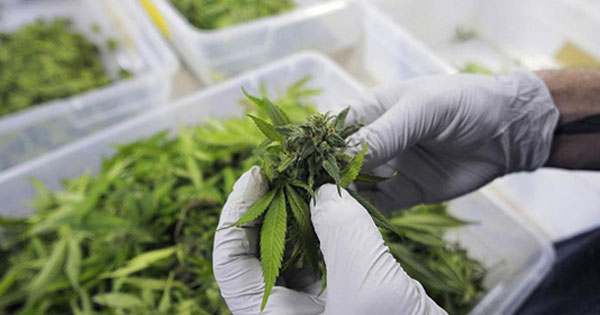
As it becomes clear that marijuana is indeed an effective drug for the curing of many diseases, individuals and companies are getting involved in the plant’s commercialization at an unprecedented rate.
Despite the United States Drug Enforcement Agency’s reluctance to relax federal laws surrounding the use of marijuana, five states will be voting to make changes to their marijuana laws this November, joining those who have already legalized the plant for recreational or medicinal purposes.
This will create large opportunities in the marijuana industry. It is expected that the states’ actions will further create a viable market for marijuana across North America.
In 2015, it emerged that Monsanto, the agrochemical and agricultural biotechnology giant, wanted to involve itself in the marijuana business. This news first appeared on alternative news networks, leading to marijuana advocates criticising Monsanto’s attempts to monopolize the plant. The company came under severe criticism and backlash.
On April 25 this year, Monsanto said it has no intention of getting involved in the marijuana business. The company’s spokeswoman, Charla Lord told the Willamette Week in an interview: “Monsanto has not, is not and has no plans for working on cultivating cannabis.”
But despite this statement, many people kept a close eye on the company’s activity. Many believed that Monsanto had already delved into the marijuana industry, but was hiding it from the public.
True to this suspicion, Monsanto was later revealed to have created the first ever genetically modified strain of marijuana, and was looking to patent it, creating an uproar.
In order to stop Monsanto from continuing with their dubious activity, a pioneering biotechnology startup based in Oregon’s capital, Portland, has launched an online interactive guide that maps the genetic evolution of the marijuana genome. This mapping allows for specific strains of marijuana – that are already in the public domain – a form of protection from large biotech patenting, such as Monsanto.
The startup, called Phylos Bioscience, has collected different samples of marijuana strain for over two years now. By doing this, the startup was able to sequence the plant’s DNA, developing a software that presented a 3-D visualization of the collected data. Phylos Bioscience has said they are now ready to unveil the project.
The startup has since gone online with its interactive guide, which the company calls Galaxy. The online interactive guide allows people to easily travel in cyberspace through a three-dimensional projection of the genetic information drawn from sequencing samples of the plant, which is increasingly being legalized for medical and recreational use throughout the United States. With the Galaxy, users can view the hereditary sequence of each plant by following lines that connect strains to their genetic parent or offspring. Similar plants are located close to each other, while selected colors group the plants into “tribes” based on their region.
The colorful 3-D map also allows users to visualize statistical relationships between different breeds of marijuana. Phylos Bioscience said that having genetic information easily available online will help bring order to the marijuana business that once began underground, which now is making a commercial transition. Researchers who gathered and presented the data for Phylos Bioscience said over time, this sort of visual map can even be applied to other types of plants – or even to animals.
Sales and Marketing Manager of Phylos Bioscience, Carolyn White said the company wants to gather all available data of marijuana. She was quoted as saying: “Sample collection was a huge part of this process. One side was a collaboration with growers, dispensaries and labs to collect modern samples, and the other a process of hunting down ancient landrace strains from all over the world.”
“We’ve collected samples from all over the world, and cataloged the genetic information encoded in their DNA,” Dr Holmes, Phylos’s chief science officer and molecular and evolutionary biologist, in addition to being a co-founder of Phylos Bioscience, told The New York Times, continuing, by explaining how relating the DNA sequencing to an actual bar code in terms of identification and evolutionary relationship relative to other samples takes place.
According to experts, the data gathered by Phylos Bioscience could theoretically help protect the intellectual property rights of growers of marijuana from potential big business interests, such as Monsanto, from gaining a patent foothold in the growing industry.
Currently, Phylos Bioscience is planning to launch a commercial sequencing product to allow for anyone to send in a sample and have it mapped. The sample would then be placed into the Galaxy, with the customer receiving a detailed analysis of the strain’s sequenced data.
You want to support Anonymous Independent & Investigative News? Please, follow us on Twitter: Follow @AnonymousNewsHQ
This article (Startup Maps Marijuana Genome to Protect Monsanto from Patenting it) is a free and open source. You have permission to republish this article under a Creative Commons license with attribution to the author and AnonHQ.com.









Salem is the capital of Oregon. Other then that, good article.
LMAO. Portland, Oregon. Our capital. That’s how you can tell someone isn’t from Oregon.
are all the plants varied from the same genome like sativa and indica?
who deleted the last message?